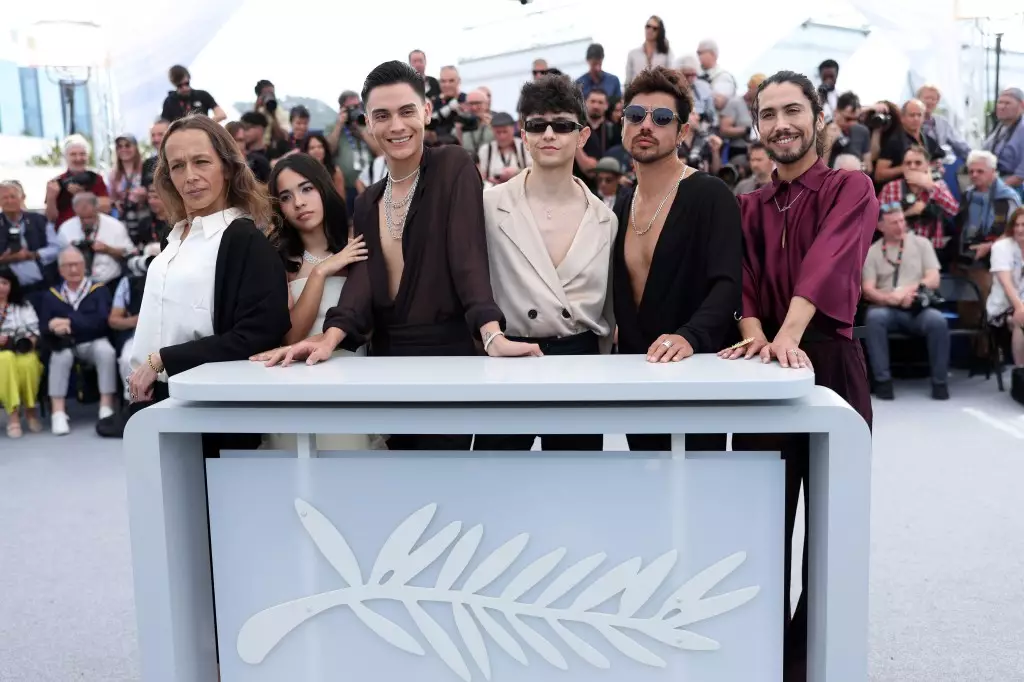The Cannes Film Festival has once again spotlighted the diverse and ambitious nature of contemporary filmmaking. Its prestigious Un Certain Regard section has seen a standout victory for “The Mysterious Gaze of the Flamingo,” directed by Diego Céspedes. This Chilean drama, set against the backdrop of 1982, presents a poignant exploration of love, fear, and societal stigma through the eyes of an eleven-year-old girl named Lidia. The film delicately navigates the intersection of childhood innocence and complex adult themes, delving into how myths can shape societal perceptions of love and identity.
Céspedes’ narrative unfolds in a remote mining town where rumors of a mysterious and deadly disease circulate, purportedly transmitted through fleeting glances shared between men in romantic contexts. This thematic layering is masterfully captured, reflecting both Lidia’s desperate need to protect her family and her quest for truth in a world rife with prejudice. What resonates profoundly is not just its exploration of LGBTQ+ identities but also the oppressive societal structures that threaten closeness and understanding.
A Thoughtful Exploration of Identity and Obsession
The second big winner, “A Poet,” directed by Colombian filmmaker Simón Mesa Soto, provides a contrasting yet equally engaging perspective. The film follows Oscar Restrepo, a poet who has fallen prey to the archetype of the tormented artist, encapsulating a journey that many creative souls endure. Through Oscar’s experience, we are reminded that artistic passion often coexists with loneliness and unfulfilled dreams. Encountering Yurlady—a bright young girl with artistic potential—sparks a flicker of hope in his otherwise dim existence. However, the film thrusts the audience into the moral quandary: Is it right to intertwine one’s passions with another’s aspirations, especially when the stakes may lead to exploitation?
Soto’s narrative not only highlights the struggles faced by individuals pursuing artistic paths but also raises ethical questions about mentorship and the responsibilities that come with influence within creative environments.
Recognition of Unique Voices and Perspectives
In addition to the standout films, accolades were distributed to remarkable works like “Pillion,” which marked Harry Lighton’s impressive entrance into the cinematic world. This film’s storyline, focusing on a young man exploring his emerging sexuality within a dynamic yet complex relationship, sheds light on the often silent struggles of self-acceptance in a predominantly heteronormative society. The character of Colin, portrayed by Harry Melling, brings forth a multi-faceted portrayal of vulnerability and strength, expertly navigating the sometimes painful journey of self-discovery.
The festival’s recognition of Palestinian filmmakers Tarzan and Arab Nasser with the Best Director award for “Once Upon a Time in Gaza” further emphasizes Cannes’ commitment to amplifying voices from marginalized narratives. It showcases cinema’s potential as a vehicle for social commentary and personal catharsis.
Cannes 2023 has indeed elevated unconventional narratives that challenge perceptions while building bridges between audiences and stories that deserve to be told. The recognition of diverse filmmakers, including the stellar jury led by Molly Manning Walker, reinforces the festival’s role as a critical platform for innovative storytelling and representation in the global film landscape.
